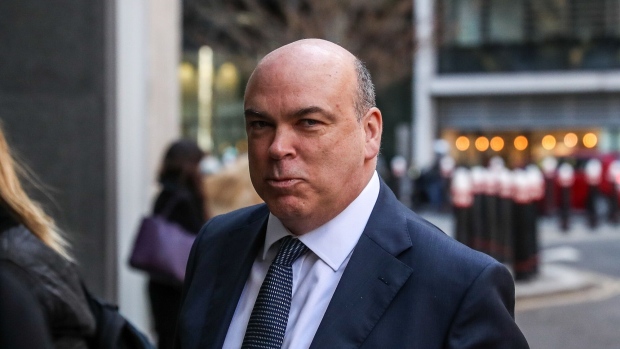UK tech tycoon Mike Lynch lost his bid to appeal his extradition to the US to face criminal charges over the Hewlett Packard sale.
The Autonomy Corp. founder had tried to block his transfer to the US after the British government approved the move in January 2022. This followed a separate court judgment that he was dishonest in the $11 billion sale of his company.
None of the grounds of appeal were arguable, judges Clive Lewis and Julian Knowles wrote in a ruling Friday.
Lynch, who denies all the charges, had argued that the case belonged in the UK and could have been fully investigated by British authorities. Spokespeople for Lynch did not immediately respond to calls and emails requesting a comment.
It’s the latest chapter in a legal saga that began shortly after the 2011 sale of Lynch’s Autonomy to Hewlett Packard. A year after the sale, the Silicon Valley hardware giant wrote down the value of the deal by $8.8 billion.
Lynch, had been seeking to appeal on five grounds, with his main argument being that the criminal case against him should be in the UK where the bulk of the events allegedly occurred.
“These matters belong firmly in the UK,” Alex Bailin, Lynch’s lawyer, said at the hearing. “Extradition is not in the interest of justice and the allegations can fairly be tried here.”
It’s the latest chapter in a legal saga that began shortly after the 2011 sale of Lynch’s Autonomy to Hewlett Packard. A year after the sale, the Silicon Valley hardware giant wrote down the value of the deal by $8.8 billion.
Bailin said that the UK’s Serious Fraud Office has “expressly reserved” its rights to prosecute Lynch in the UK if the extradition is refused. This is despite the SFO previously opening an investigation and closing the case without any charges.
The US government opposed the application to appeal. Its lawyers said that the “USA was integral to all aspects of the alleged fraud” and that the extradition should proceed as it was predominantly US-based shareholders who were victims of the fraud, according to court documents prepared for the hearing.
Speaking about the case, Thomas Garner, partner and extradition lawyer at law firm Fladgate: “Lynch appears to have reached the end of the road. It is difficult to see the Strasbourg Court intervening in this case and it should be remembered that any application to Strasbourg can only be founded on narrow human rights grounds – much of his argument in the UK was that the US was not the proper forum for any trial.
If an application is made to Strasbourg then he can also seek an order effectively injuncting his removal to the US – such orders are very rare and are typically reserved for cases in which the Court is concerned that there is an imminent a threat to life or ill-treatment amounting to torture or inhuman or degrading treatment.”


